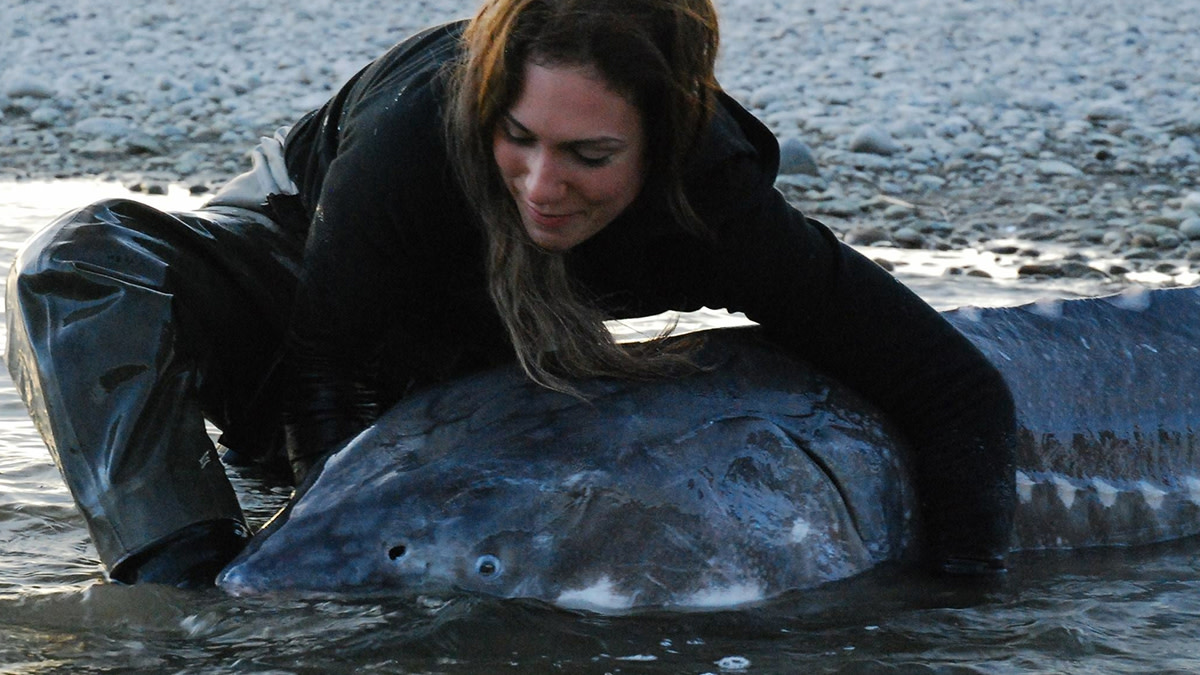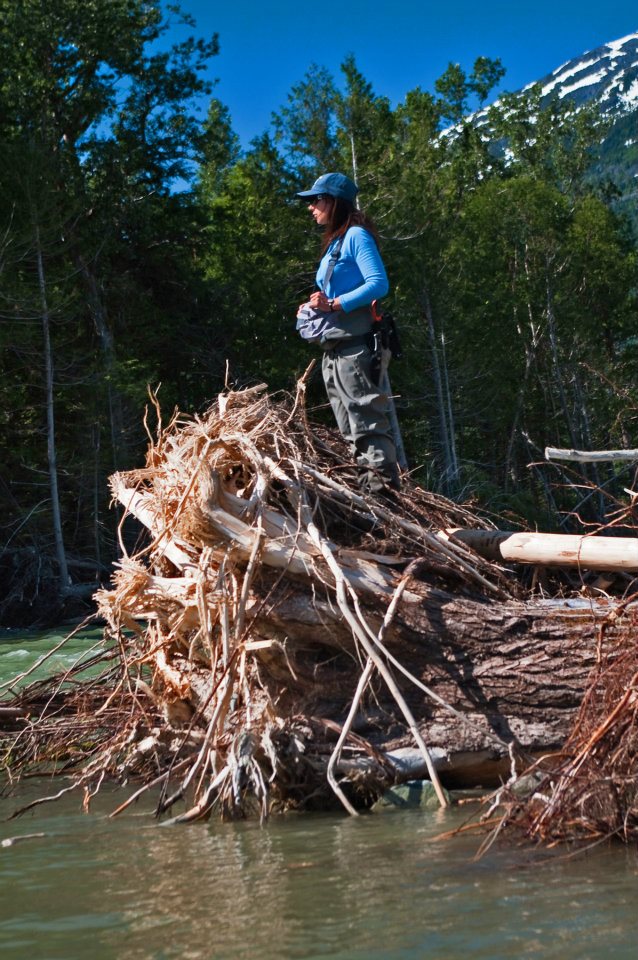
This is the first installment in a five-part series outlining the experiences of working fishing guides and what it takes to survive a dream job.
In my early 20s, I worked part-time at a tackle shop in Abbotsford, British Columbia. I wasn’t there for the paycheque, rather for the hefty discount on expensive gear and fly-tying materials. I ran a tab with the shop owner and paid back my debt on weekend shifts, selling Bouncing Betties to salmon fishermen on their way to the Fraser River.
My “real job,” cocktail waitressing at a nearby casino, had me walking the tacky carpet between blackjack tables, poker rooms and slots, selling drinks to thirsty gamblers. I knew most of the late night players by name, or at least the names we called them. The 8:30 p.m. to 4:30 a.m. shifts fit my fishing addiction. I hustled the poker room by night, learned my fishery by day, and worked two days a week at the shop to build up my collection of flies and equipment.
Days at the shop introduced me to the industry of fishing. Reps, guides and crusty legends leaned against the countertop for hours at a time, telling stories of difficult clients and ass-kicking fish. Word spread that the young girl who fished by herself was now working at the shop.
When an outfitter tracked me down to offer a guiding job, I accepted.
My first year was anything but smooth. I guided sturgeon and salmon on the Fraser and Harrison rivers; both required me to run a jet boat. I had no clue how to run a jet boat. My new boss gave me a quick rundown on how to operate his North River, and I did my best to navigate the busy boat launch amidst dozens of other scrambling guides. I stuck out like dog’s balls with my bright blonde hair and casino manicure, eyes bagged out from working the night before. I kept up the charade for as long as a 20-something can, but soon cut down my casino hours to accommodate the guiding schedule. It was seasonal work, so I gave away the majority of my summertime waitressing shifts and powered through the hectic months.
I was a lousy sturgeon guide. No amount of experience could fix that, mainly because I just didn’t like it. The salmon guiding kept me engaged, but I fell in love with the walk-and-wade winter steelhead trips. Without the need for a boat, I applied for a guide license and insurance, opting to guide for my own company, Fly Gal Ventures, instead. The transition meant fewer bookings and a pissed off employer, but remains one of the best decisions I ever made.
Today, people looking to follow a similar career path contact me regularly. In fact, it’s probably the most common email I receive.
“I want to leave my job to become a full-time fishing guide. Should I do it?”
There’s no easy answer. I usually refer people to my podcast and the stories from my guests. Over 100 episodes of Anchored outline the trajectories of some of the industry’s most influential players—accounts of how they “made it,” their lives before entering the outdoor industry, their struggles along the way and where they are today.
When pressed, I share the story of my own journey from cocktail waitress to full-time guide, but stress that each person and scenario have their own variables. I was a female angler at a time when there were very few women in the industry (a trait that had its fair share of downfalls). I was also born and raised in British Columbia, home to some of the best, and best known, fisheries in the world. Then there was the timing aspect. I’d set out to pursue my career before social media existed and online marketing became the norm. By the time the internet became available on phones, I’d already decided on my career path. It was a good time to be young, ambitious and hungry to make a living doing something I loved.
To be successful in any field demands mastery of craft. With that in mind, I skipped school, family gatherings, parties and work to gain a thorough understanding of my local rivers. I hurt feelings, lost friends, neglected boyfriends and jeopardized jobs.
I even dropped out of college. It’s important to mention this because, today, as a mother and woman who likes to know where my next paycheque is coming from, I don’t know if I’d make the same sacrifices I did back then.
In the coming weeks, I’m going to address the numerous factors any aspiring guide should consider, from financial security to personality. These articles will offer unvarnished insights into what it’s really like to guide professionally: the glorious, the awful, the unexpected and the ridiculous. I talked to friends and guides around the world to present a diversity of perspectives. Keep an eye on the MeatEater website and social feeds for the next installment of “So, You Want to Be A Fishing Guide?”
If you have any questions about the guide life that you’d like to see explored, send them to themeateater@themeateater.com. I’ll answer a select few of your questions on social media after the series is published.




